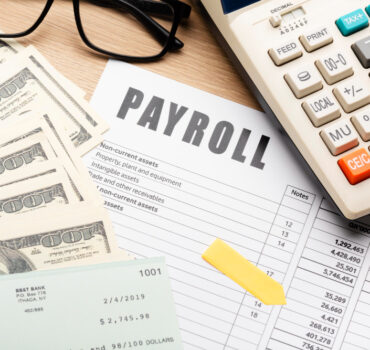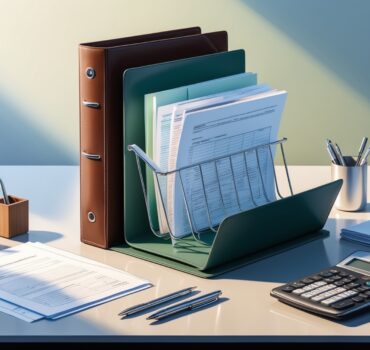
Understanding Tax Preparation and Filing
Tax preparation and filing is a critical process that every individual and business must navigate. It’s not just about meeting legal obligations; it’s about ensuring that your finances are managed efficiently and that you’re taking advantage of all possible deductions and credits. Proper tax management can significantly impact your financial health and peace of mind.
The Basics of Tax Preparation
What is Tax Preparation?
Tax preparation involves gathering financial information, calculating your tax liability, and filling out the necessary forms to submit to the tax authorities. It’s a systematic process that ensures you pay the right amount of taxes and claim any refunds you’re entitled to.
Who Needs to File Taxes?
In general, anyone with income above a certain threshold must file taxes. This includes individuals, businesses, freelancers, and even retirees. Understanding your tax obligations is crucial to avoid penalties.
Types of Taxes Individuals and Businesses Must Pay
Taxes come in many forms, including income tax, payroll tax, sales tax, and property tax. The type of tax you’re liable for depends on your income sources, location, and business activities.
Key Steps in Tax Preparation
Gathering Necessary Documents
Before you begin preparing your taxes, it’s essential to gather all relevant documents, such as income statements, expense receipts, investment records, and previous tax returns. Having everything organized will make the process smoother and faster.
Understanding Your Tax Forms
Different types of income require different forms. For example, employees receive a W-2 form, while freelancers often receive 1099 forms. Understanding which forms apply to you is vital for accurate tax filing.
Deductions and Credits
Deductions and credits can significantly reduce your tax liability. Common deductions include mortgage interest, charitable donations, and business expenses. Credits, like the Earned Income Tax Credit, provide direct reductions in the amount of tax you owe.
Common Tax Forms You Should Know
Form 1040: Individual Income Tax Return
Form 1040 is the standard tax form used by individuals to file their income taxes. It includes sections for income, deductions, credits, and tax payments.
W-2: Wage and Tax Statement
The W-2 form reports wages paid to employees and the taxes withheld during the year. Employers provide this form to both the employee and the IRS.
1099 Forms: Reporting Other Income
There are several types of 1099 forms, each used to report different types of income, such as freelance earnings, interest, or dividends. These forms are crucial for anyone with non-employment income.
Tax Filing Methods
Filing Taxes Manually
You can file your taxes manually by filling out paper forms and mailing them to the IRS. However, this method is time-consuming and prone to errors.
Using Tax Software
Tax software simplifies the filing process by guiding you through each step and ensuring that all calculations are accurate. Popular options include TurboTax, H&R Block, and TaxAct.
Hiring a Professional Accountant
For complex tax situations, hiring a professional accountant may be the best option. They can handle the nuances of tax law and ensure that you maximize your tax benefits.
The Importance of Filing Taxes on Time
Consequences of Late Filing
Filing your taxes late can result in penalties and interest charges. The IRS imposes a penalty for late filing that increases the longer you wait.
How to Request an Extension
If you need more time to file your taxes, you can request an extension. This gives you an additional six months to submit your return, but any taxes owed must still be paid by the original deadline.
Tax Filing for Different Types of Taxpayers
Individuals
For most individuals, filing taxes involves reporting income from employment, investments, and other sources. Deductions and credits vary depending on your financial situation.
Small Businesses
Small business owners must file taxes based on their business structure. Sole proprietors, partnerships, and corporations each have different filing requirements.
Freelancers and Contractors
Freelancers and contractors, who typically receive 1099 forms, are responsible for paying self-employment taxes in addition to regular income taxes.
Tips for Reducing Your Tax Liability
Maximizing Deductions
Keep detailed records of all deductible expenses, such as business costs, medical expenses, and charitable contributions. These can significantly reduce your taxable income.
Leveraging Tax Credits
Tax credits offer a dollar-for-dollar reduction in your tax bill. Research available credits, such as education credits or energy-efficient home credits, to maximize your savings.
Retirement Contributions
Contributing to retirement accounts like an IRA or 401(k) not only secures your financial future but also reduces your taxable income.
What to Do If You Owe Taxes
Payment Plans and Options
If you owe taxes and cannot pay in full, the IRS offers payment plans that allow you to pay over time. It’s better to set up a plan than to ignore the debt.
Penalties for Non-Payment
Failing to pay your taxes can result in severe penalties, including wage garnishments and bank levies. Addressing the issue promptly is crucial.
IRS Fresh Start Program
The IRS Fresh Start Program offers options for taxpayers struggling with tax debt, including more lenient payment plans and reduced penalties.
The Role of Tax Software in Simplifying Tax Filing
Popular Tax Software Options
Software like TurboTax, H&R Block, and TaxSlayer provide user-friendly interfaces that make tax filing accessible to everyone, regardless of tax knowledge.
Benefits of Using Tax Software
Tax software streamlines the process, ensures accuracy, and can even help you find deductions and credits you might have missed on your own.
Limitations of Tax Software
While tax software is helpful, it may not be the best option for complex tax situations. In such cases, consulting a tax professional is advisable.
Hiring a Tax Professional: When and Why
Benefits of Hiring a Professional
Tax professionals bring expertise that can save you time and money. They stay updated on tax laws and can provide personalized advice.
Costs Involved
Hiring a professional can be expensive, but the cost is often justified by the potential savings and peace of mind.
How to Choose the Right Tax Professional
Look for a certified public accountant (CPA) or an enrolled agent (EA) with experience in your specific tax situation.
Common Tax Filing Mistakes to Avoid
Missing Deadlines
One of the most common mistakes is missing the filing deadline. Mark your calendar and file early to avoid penalties.
Incorrect Information
Ensure that all information on your tax forms is accurate. Mistakes can lead to delays, audits, or additional taxes owed.
Overlooking Deductions
Failing to claim all eligible deductions is a costly mistake. Keep thorough records throughout the year to ensure you don’t miss any opportunities.
Post-Filing Considerations
Keeping Your Tax Records Organized
Store your tax documents securely for at least three years. These records are essential if you need to amend your return or if you’re audited.
What to Do If You Get Audited
If the IRS audits you, stay calm and gather all relevant documentation. You may want to hire a tax professional to guide you through the process.
Amending Your Tax Return
If you discover an error after filing, you can amend your tax return using Form 1040-X. This form allows you to correct mistakes and claim additional refunds.
The Future of Tax Filing
Trends in Tax Technology
Tax filing is becoming increasingly digital. Advances in AI and automation are making the process faster and more accurate.
Potential Changes in Tax Laws
Tax laws are constantly evolving. Staying informed about changes can help you adjust your tax strategies and remain compliant.
Conclusion
Tax preparation and filing are essential responsibilities that require careful attention to detail. Whether you’re an individual, a small business, or a freelancer, understanding the steps involved can help you navigate the process with confidence. By staying organized, leveraging available tools and resources, and seeking professional help when needed, you can ensure that your tax filing is accurate and stress-free.
FAQs
What happens if I miss the tax filing deadline?
Missing the tax filing deadline can result in penalties and interest. It’s best to file as soon as possible, even if you can’t pay your taxes immediately.
How long should I keep my tax records?
You should keep your tax records for at least three years from the date you file your return. However, some documents may need to be kept longer for certain situations.
Can I file my taxes online for free?
Yes, many tax software providers offer free filing options, especially if you have a simple tax situation. The IRS also offers Free File for eligible taxpayers.
What is the IRS Fresh Start Program?
The IRS Fresh Start Program helps taxpayers who are struggling with unpaid taxes by offering more flexible payment options and reduced penalties.
How do I choose the right tax software?
Choose tax software based on your tax situation, budget, and comfort level with technology. Look for software that offers the forms and support you need.








